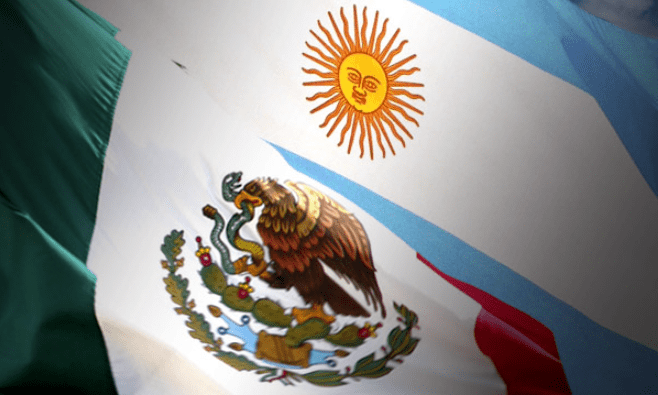Mexico and Argentina are preparing to restart negotiations to expand the Economic Complementation Agreement No. 6 (ACE 6) between the two.
Already before the Covid-19 pandemic, the two nations held three meetings in the first half of 2019 to assess the bilateral trade relationship and explore formulas for the expansion and deepening of ACE 6.
In 2020, Mexican exports of products to the Argentine market were 712 million dollars.
Among the best-selling Mexican products in Argentina are cars, vehicles for the transport of goods, shampoos and terephthalic acid.
Conversely, Argentina’s sales to the Mexican market totaled 588 million dollars last year, highlighting certain iron and steel products, vehicles for the transport of goods, medicines and wines.
«This year, Mexico and Argentina could begin negotiations,» said Fernando Ruiz Huarte, Comce‘s general director.
Today, Argentina grants tariff preferences under the different trade agreements it has negotiated, either as a member of Mercosur or bilaterally.
According to the World Trade Organization (WTO), in most cases the tariff preferences applied in 2020 reached around 90% of the tariff universe, with the exception of the agreement with Mexico (50.8%), Cuba (25.6%) , SACU (14.0%) and India (9.3 percent).
ACE 6
The average applied preferential tariff varies: it is 0% for the Plurinational State of Bolivia, Chile and Peru; 10.7% for India and 10.2% for SACU.
The average preferential tariffs applied to agricultural products are, in almost all cases, except for Peru, less than or equal to those applied to non-agricultural products.
Likewise, within the framework of the Economic Complementation Agreement No. 55 between Mexico and Mercosur (ACE 55), on March 19, 2019 the Sixth Additional Protocol to Appendix I was signed (with Argentina), with which Mexico maintained access preferential Mexican light vehicles to that country with zero tariff for the agreed annual import quotas.
Argentina is a founding member of the WTO and grants at least most favored nation (MFN) treatment to all its trading partners and periodically submits notifications related to its trade and related measures.
Likewise, according to the WTO, Argentina considers it important for this organization to resume “its central role” in international trade and to have a rules-based, open and equitable multilateral trading system that contributes to inclusive development.
On the other hand, Argentina ratified the Agreement on Trade Facilitation and the Protocol amending the TRIPS Agreement.
Although Argentina is recognized as an observer before the Public Procurement Committee, it has no immediate intention of adhering to the Agreement on Government Procurement (GPA).
![]()

